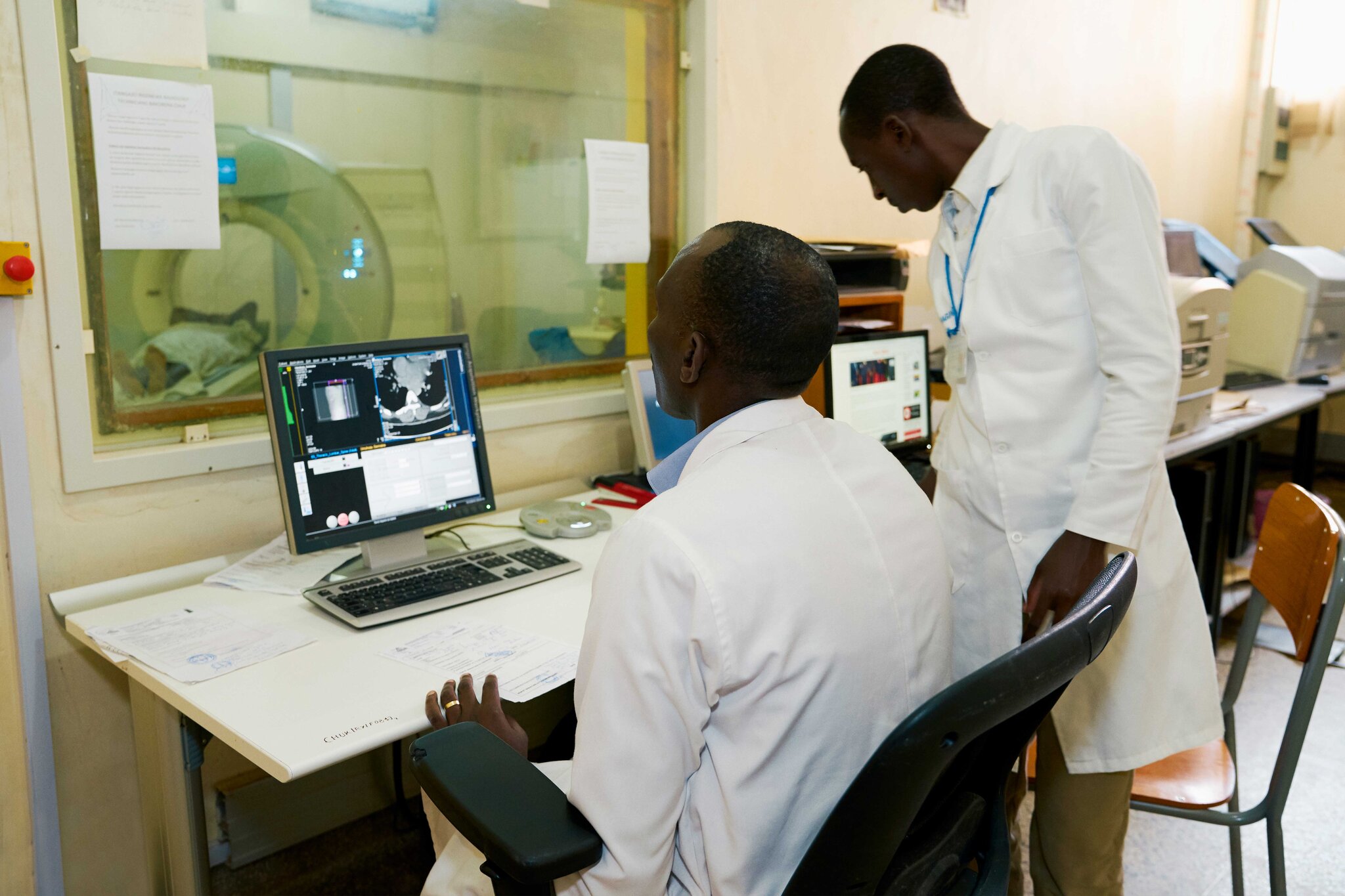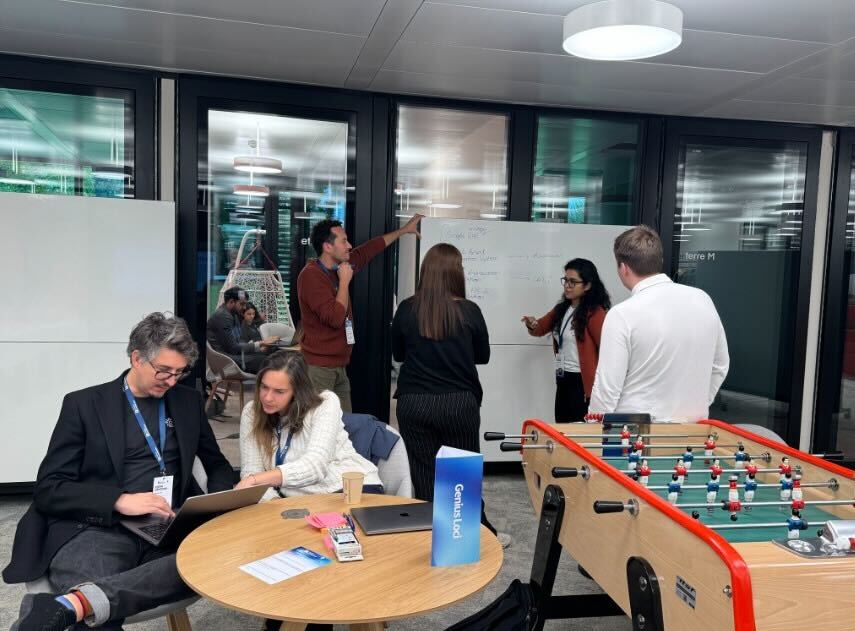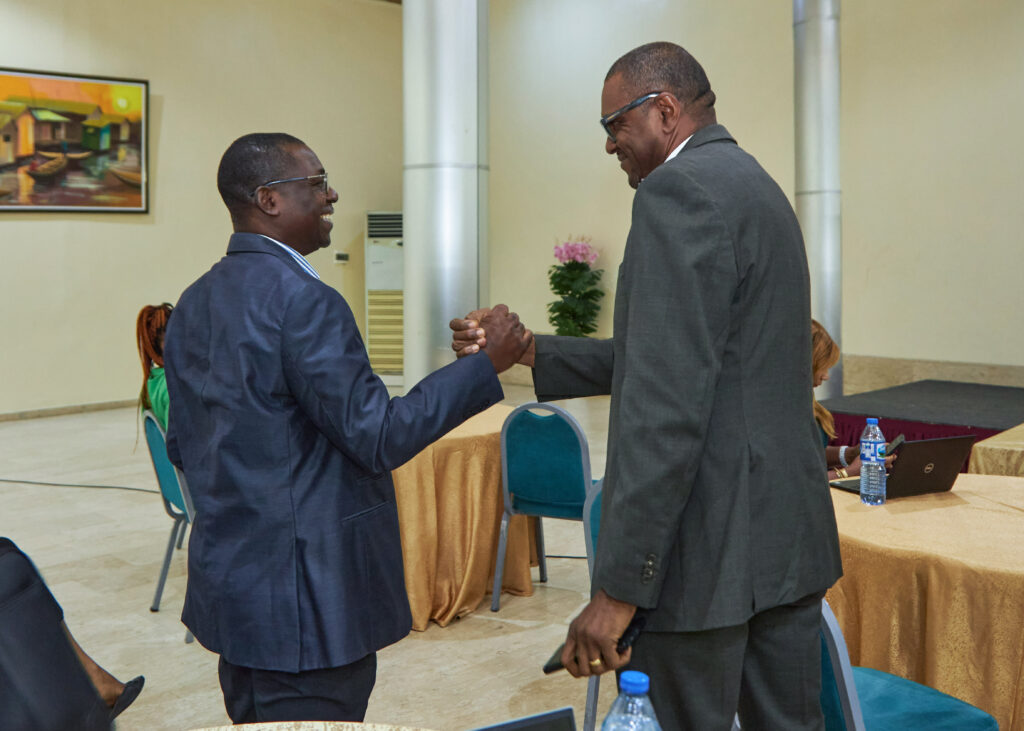
Cancer care during the pandemic
Earlier this week, C/Can held the third in a series of webinars designed to share early experiences, and innovative strategies to continue the delivery of quality cancer care in the wake of COVID-19. Moderated by Sophie Bussmann-Kemdjo, Director for Africa and Europe at the City Cancer Challenge Foundation (C/Can), the webinar focused on sharing examples of how cities such as Kigali, (Rwanda) and Kumasi (Ghana) are charting their own paths in responding to the COVID-19 pandemic and beyond.
C/Can currently has operations in Kigali and Kumasi supporting them in the design and implementation of equitable cancer care solutions.
“The webinar was developed in response to requests from C/Can cities for practical information on cancer care treatment during the pandemic,” commented Ms Bussman-Kemdjo in her opening remarks.
Panellists highlighted some of the measures being taken at both the national and institutional levels in response to COVID-19, as well as specific strategies to support the continued provision of quality cancer care, with examples from medical oncology, surgery and palliative care. Examples of new public-private partnerships and digital health solutions that could impact the delivery of cancer care post-COVID-19 were also discussed.
Reinforcing infection prevention and control
Dr Claire Karekezi, Neurosurgeon at the Rwanda Military Hospital in Kigali, noted that hospitals in Kigali have responded to the crisis with a rapid focus on infection prevention and control, including reinforcement of hygiene measures, use of PPE, and limiting elective surgeries to focus on emergency cases, and avoid hospital congestion.
“We have seen a clear decrease in patient flow because of movement restrictions, and less trauma cases. This means we are able to direct more resources to continued follow-up of existing and emerging tumour cases” said Dr Karekezi.
Priority is being given to patients with increased intracranial pressure (ICP) or other symptoms that cannot wait until lockdown restrictions are lifted. In each case, a review of the benefit/risk ratio is undertaken with involvement from the whole team. Surgery for patients with slow growing tumours have for example been delayed when safe to do so; these patients are advised on what to look for in terms of progressing symptoms and when to alert the hospital so that urgent care can be organised if needed.
Distancing and digital consultations
Dr Kathryn Spangenberg, Head of the Family Medicine Directorate at the Komfo Anokye Teaching Hospital in Kumasi, shared some of the key changes that have been instituted in the delivery of palliative care to cancer patients:
- Physical distancing and hygiene measures before and after consultations reinforced, with health professionals, patients and family members encouraged to use gloves, masks etc;
- Home visits substituted by digital consultations;
- Prescription refills managed over the phone; only controlled substances require patients to come into the hospital.
“One of our biggest challenges was how to limit physical contact, especially at the end of life. We have allowed relatives to touch patients at the end of life, but insisted on hand-washing, and ensured availability of running water and soap” said Dr Spangenberg.
Situation, Impact, Response
Dr Githinji Gitahi, Group CEO of Amref Health Africa, highlighted some of the particular challenges faced in the region where health systems are already under heavy strain, with only 14/54 countries spending more than USD100 per capita on health compared to USD10,000 in the USA for example. He noted that despite there being relatively low confirmed infection rates, COVID-19 is having a negative effect on African economies.
Dr Githinji provided an overview of the three-pronged COVID-19 response strategy that has been adopted across the continent: i) preventing transmission including through curfews and lockdowns, and scaling of testing capacity; ii) preventing deaths through isolation of the most vulnerable and procurement of PPE and other equipment; and iii) preventing social harm resulting from lost livelihoods, sexual and gender-based violence and mental illness.
Underlining the critical importance of testing, Dr Githinji said: “We must be clear about the end goal of testing. The purpose of testing is to be able to isolate and prevent further infection. This brings up a critical challenge – who pays for the isolation of these individuals given that it is a public service, and particularly in predominantly informal economies where people simply cannot afford to isolate?”
Speaking about strategies to prevent deaths from COVID-19, he added that
“it requires a strong health system, but more importantly, it needs to be an equitable health system that is affordable for all”.
Innovation and collaboration
Frank Loeffler, Roche Country Manager, East Africa, highlighted the importance of ensuring that cancer patients can continue to receive the treatments they need. Speaking about pharmaceutical innovations triggered by the COVID-19 response he said “in many countries we have worked to approve oral and subcutaneous treatments that can reduce the need for patients to come into oncology centres, or at least reduce the frequency of visits. This can be complemented with online counselling and guidance for patients. ”
He noted that we are also seeing interesting initiatives to further reduce the exposure of healthcare workers, including through virtual platforms for tumour boards, already being used in Kenya and elsewhere.
“We are also seeing innovative public-private partnerships emerging. In Algeria, hotel chains are offering rooms to healthcare workers to reduce exposure to their families and other people in their communities” added Mr Loeffler.
Speaking about supply chain management, he concluded that Roche is doing their best to keep the supply chain running, and are working in close collaboration with the airlines, using charter flights where there are no commercial ones available.
Emerging opportunities for cancer care in the post-COVID-19 era
Responding to questions posed by webinar participants, panellists also commented on what they see as some of the emerging opportunities for cancer care in the future:
“COVID-19 has reminded us that we need a robust healthcare system at all levels, and we need to be prepared. It has also shown us very clearly that anyone from anywhere in the world can share knowledge. Many opportunities are emerging online for sharing experience without any expense for travel etc.” said Dr Karekezi.
“We have also seen the necessity for further development of important sub-specialities like critical care/ emergency medicine and anesthesiology that have played a key role in the pandemic, and which will eventually also improve surgical services more broadly, including for cancer ”, she added.
Dr Githinji shared Amref’s experience of training community healthcare workers using mobile phones, noting that there is already demand for this type of virtual training in Kenya, Malawi, Ethiopia and elsewhere, that could be used as part of the COVID-19 response to train on tracing for example.
Speaking about the delivery of palliative care, Dr Spangenberg emphasised the opportunities to increase the use of telemedicine. This was echoed by Mr Loeffler, who also highlighted the potential for greater use of drones and other technologies to replace traditional means of transport for essential medicines. In Rwanda, drones are already being used for example to transport COVID-19 test samples to labs.
Closing the webinar, Ms Bussman Kemdjo thanked all the panellists for their insightful contributions noting that
“today’s rich discussions have been helpful in showcasing emerging opportunities that could have a lasting impact on the future of cancer care in Africa.”
The full webinar recording is worth watching in full and is available here, as well as the slides from Dr Githinji Gitahi’s presentation:
Dr Githinji Gitahi presentation





